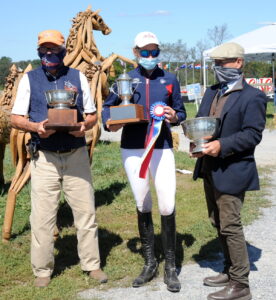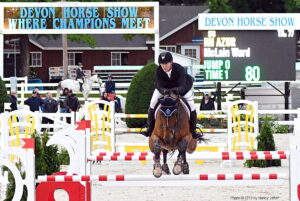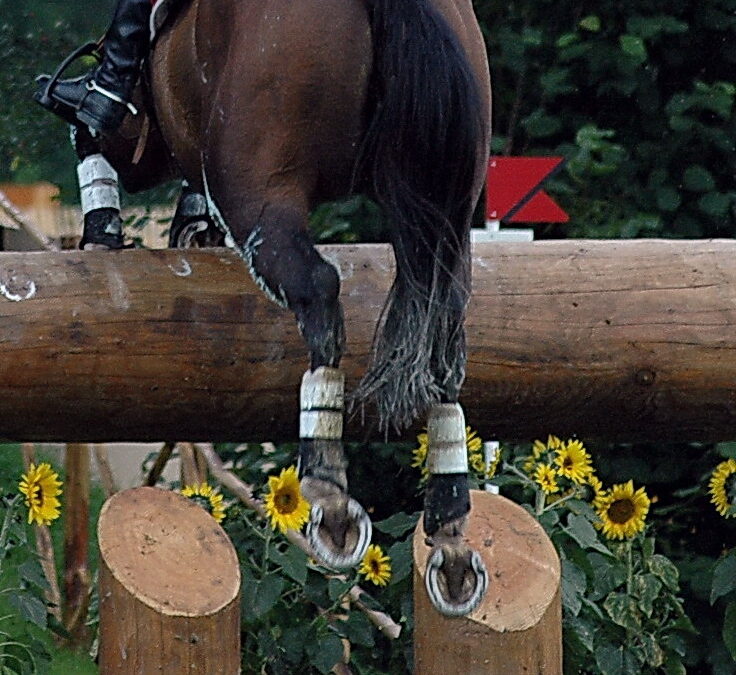The headline today is from the fourth verse of “Deck the Halls,” one of my favorite carols. It’s quite appropriate; for most of us; Covid 2020 can’t pass away fast enough.
Here we are in the middle of the “holidays,” which haven’t felt very festive without real celebrations, family and friends (live, not on a screen). Facebook, as useful as it is in some ways, can’t make up for the miles between us.
“One Christmas was so much like another, in those years,” begins “A Child’s Christmas in Wales,” and many of us will agree with that thought when it comes to the Yules they once knew. But this Christmas was certainly unlike any other, and not in a good way. Let’s hope the pandemic, with its deaths, masks, lockdowns, financial pain, quarantines and struggling businesses are just a bad memory by this time in 2021, rather than a new, despairing pattern that weaves its way into our memories like a tick.

Masks on the presenters and winners and awards ceremonies always reminds me of the pictures of bank robbers in the wild West. (Photo © 2020 by Lawrence J. Nagy)
If I had to characterize 2020 in one word, I’d select “virtual.” With the U.S. Equestrian Federation’s decision to ban spectators from shows, those who want a taste of the action must go to the live stream. And it’s just not the same. I watched the National Dog Show at Thanksgiving, hoping its cardboard “crowd” and recorded “fan” reaction wouldn’t be borrowed by misguided equestrian competitions desperately trying to add excitement. It didn’t work for the dog show.
Live stream shows are better than nothing, though. Edicts on the size of gatherings from various governors resulted in show cancellations at different periods throughout the year. Which meant no live streams.
In New Jersey, indoor shows couldn’t be held after Dec. 5, and only 25 people were allowed in groups outdoors (not that many will consider competing when the mercury drops into the 30s and below, anyway.) The regulations extend until at least Jan.2, but I suspect that could go on much longer, killing what is normally a decent indoor season in the state for those who can’t migrate to Florida.
The equestrian organizations’ annual meetings–the U.S. Hunter Jumper Association (12 days!), U.S. Eventing Association and U.S. Dressage Federation were held on Zoom, as the USEF convention will be next year when Tom O’Mara succeeds Murray Kessler as the organization’s president. Zoom cuts down on travel expenses, but the bargain means no chance for important connections involving chatter in the hallways, meeting new people or drawing someone into a lengthy back-and-forth on the issues.
Still, it’s tough to derail the horse industry even in the worst of circumstances, so there was a brighter side to the pandemic as competition organizers and exhibitors stepped up. Managers learned how to run shows efficiently with the restrictions. Show secretaries rejoiced at having entries arrive via the Internet in a timely manner. Facilities at showgrounds got intensive cleaning. And horse sales were up (just like pet adoptions.) With so many people working from home, they had more time for equestrian pursuits, especially since a host of other recreational activities were on hold because of Covid regulations.
Jill McGrady, chair of the USHJA’s Recognized Riding Academy Committee, noted lesson programs grew in size and people were spending more time at the barn than usual. Less showing also meant more learning–riders could strengthen their skills in lessons and clinics while establishing greater rapport with their horses, rather than constantly trying to cope with the pressure of competition.
Issues coming to the fore in 2020 included safety improvements, as well as how to make horse sports more diverse, while amateurs are demanding that their concerns are heard and acted on. They want their voices to be heard.
In the good horse-related news from 2020 (there was some), the President this week signed the bill that includes the Horse Racing Integrity and Safety Act passed by Congress. It establishes an independent anti-doping agency to ensure national standards (as opposed to fragmented state standards) in regard to use of drugs and medications at tracks across the country. Marty Irby, executive director of Animal Wellness Action, called the legislation, “the biggest gain for horses in half a century,” which “will put the welfare of the horses at the center of the enterprise, and put the sport on a level playing field that aligns with the rest of the world.”
When more than 23 horses died in less than three months last year at California’s Santa Anita Park, the issue of breakdowns that may be caused by race day medications could not be ignored. A national database will be developed to track injuries and fatalities. The legislation also addresses track safety through an accreditation program that ensures compliance with proper maintenance of the surfaces.
What will 2021 bring? We’re nervous…

We all missed Devon and its special atmosphere this year. (Photo © 2019 by Nancy Jaffer)
Can fixtures that couldn’t run this year stage a successful return? Think about the Land Rover Kentucky 5-star event, Devon, Lake Placid, the Essex Horse Trials, the Hampton Classic, Dressage at Devon, the new Maryland 5-star event and so many others we missed in 2020 (including the Olympics, now set for this summer in Tokyo).
And then there was the FEI World Cup Finals in dressage and show jumping, which couldn’t be held in Las Vegas last April and sadly is unlikely to return there anytime soon.
Several of the stories I covered intensively during 2020 are ongoing and will develop further next year. Here’s an update:
- Grand prix rider Kevin Babington continues to work hard at rehabilitation since being left a quadriplegic by a catastrophic fall at a horse show in August 2019. He has regained a small amount of feeling here and there, including sensation that comes and goes on the right side of his body. Kevin is part of an ongoing stem cell trial at the Mayo Clinic, while the effort he is making in physical therapy is starting to pay off. That is a tribute to the Irish Olympian’s indomitable spirit and the dedication of his wife, Dianna and their children, Gwyneth and Marielle, to his cause.
“I feel like I’m getting stronger,” Kevin told me the other day. “I’m definitely encouraged.”

Kevin Babington, with his wife, Dianna, at his side, continues teaching from his porch. (Photo © 2020 by Nancy Jaffer)
He continues to teach and said, “I feel like I’m getting better at it. If I didn’t have teaching, I’d be lost.”
Visitors have stopped coming to see him in person because of Covid, and much of the fundraising that supported Kevin at the end of 2019 and earlier this year has disappeared for the same reason, but his expenses continue to be enormous. Those looking for an end-of-year tax break can contribute to the 501c3 Kevin Babington Foundation, which handles such needs as paying for aides and renovating his Florida home, which was not handicapped accessible.
To donate, send an email to kevinbabingtonfoundation@gmail.com to obtain bank or mailing information. To make a contribution to the Babington Family Trust, which pays day-to-day expenses, send contributions (which are not tax deductible) to 13254 Casey Road, Loxahatchee, Fla., 33470.
- Although it looked as if the 2020 eventing competition at Plantation Field in Pennsylvania would be the last held there following a furor over the competition’s name, eventing at the facility actually will continue next year. When a website started a campaign to change the event’s name, contending that “Asking people of color to come visit, to spectate, volunteer, or compete, at a place called Plantation is insensitive at best and works against our efforts to implement more diversity in the sport,” property owner Cuyler Walker was upset by the implication that his family had a link with racism. He resigned from the board of Plantation Field Equestrian Events and cancelled the event’s lease on the property. Plantation Field had no connection to slavery; it got its name after Boy Scouts planted trees there in the 1930s.
-

The signature cross-country complex at Plantation Field. (Photo © 2020 by Lawrence J. Nagy)
It turns out, however, that the lease had a provision enabling events to be held on the acreage for two more years after the contract was cancelled. So the board of Plantation Field Equestrian Events voted to have competition continue at the scenic site in 2021.
As 2020 wanes, we should give a thought to those we lost in the preceding 12 months. They include modern pentathlon coach Lt. Col. John Russell who reached the century mark; Ricci Desiderio, the trainer who ran Tranquillity Farm in Chester Township with his family and was a strong voice for agriculture in New Jersey; Agneta and Brownlee Currey, pillars of the Hampton Classic and U.S. Equestrian Team Foundation and James Cox Brady of Bedminster, an important figure in racing whose grandfather built the landmark stable that is the Gladstone headquarters of the USET Foundation.
Others who passed on included Eugene “Captain Seawood” Johnson, a true horse show character who could do any job around a venue, from grooming to cooking; Pan Am Games team gold and individual bronze eventing medalist Packy McGaughan and hunter/jumper/author/trainer Kip Rosenthal. This month, we lost esteemed judge Frank Willard, a North Carolinian also known for his career as a top rider and trainer; as well as Ray Harper of Howell Township, who had been director of information technology for the USET Foundation. Also gone in December were show manager and national PHA President Naomi Blumenthal and Kitty Wieschhoff, well-known in the eventing world, whose obituaries are still in the On the Rail section of this website.
Horses who went to greener pastures were dressage great Totilas, equitation star Grappa and McKinlaigh, Gina Miles’ 2008 Olympic eventing silver medal mount.
Let’s remember them all fondly and then ride forward into 2021 with confidence and our eyes up, hoping for better things. Happy New Year!




